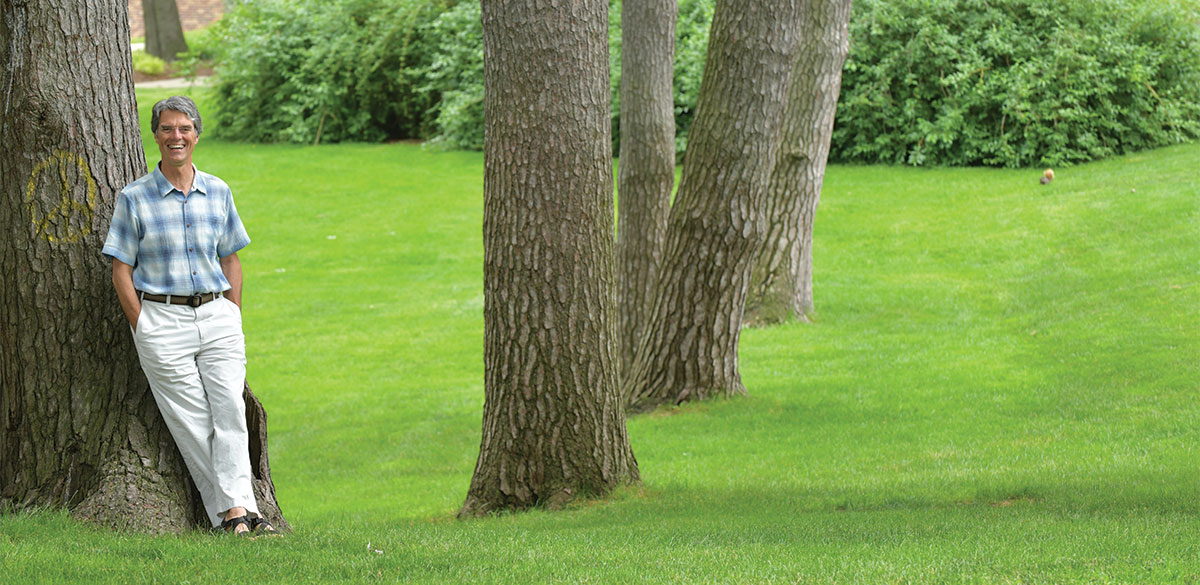For All of God’s Good Earth
Steve Bouma-Prediger, Ph.D.
Leonard and Marjorie Maas Professor of Reformed Theology
According to a recent Yale University survey, only 18 percent of American evangelical and born-again Christians believe that caring for the earth is part of their faith. When environmental theologian Dr. Steve Bouma-Prediger hears a statistic like that, he matter-of-factly responds, “I have a lot more work to do.”
That work, which he has undertaken for the entirety of his 25 years at Hope, has already been substantial. In the classroom and in his scholarship, Bouma-Prediger educates others to engage in faith-filled creation care as part of their Christian identity. In 2018 he completed his sixth book on the subject, Earthkeeping and Character: Exploring a Christian Ecological Virtue Ethic, which Baker Academic Publishing will publish in 2020.
The term “earthkeeping” may strike some as simply a kinder, gentler riff on the more common term “environmentalism.” There’s actually a lot more to Bouma-Prediger’s word choice. He avoids terms like “environmentalism” because they don’t assume that God and faith have been invited into ecological conversations. In Bouma-Prediger’s world of environmental theology and ethics, faith is an essential starting point. From biblical references to trees and rivers at the beginning of Genesis to more trees and rivers at the end of Revelation, the Bible is clear, he says: Humans are creatures called to care for what God created, and thus, earthkeeping is an integral part of what it means to be a Christian.
“A term like ‘earthkeeping’ is more biblical and simply refuses to accept the view that the natural world is a commodity to be used by humans who only manage its resources for our own ends,” he explains. “Being a keeper, in the biblical sense, means being someone who serves and protects. So the term ‘earthkeeping’ creates an image that much more clearly captures the idea that we are creatures called by God to take care of creation.”
An outdoor enthusiast, Bouma-Prediger oversees Hope College’s environmental studies minor and chairs the Campus Sustainability Advisory Committee. For more than 20 years he also has taught a May Term course in the Adirondacks of upstate New York with fellow Hope alum Kent Busman ’82. The three-week course has been an outdoor eye-opener for hundreds of Hope students who now see Christian stewardship as something more than time and talent and treasure given to care for the church. Stewardship also includes keeping and caring for God’s good earth.


3 thoughts on “For All of God’s Good Earth”
Comments are closed.